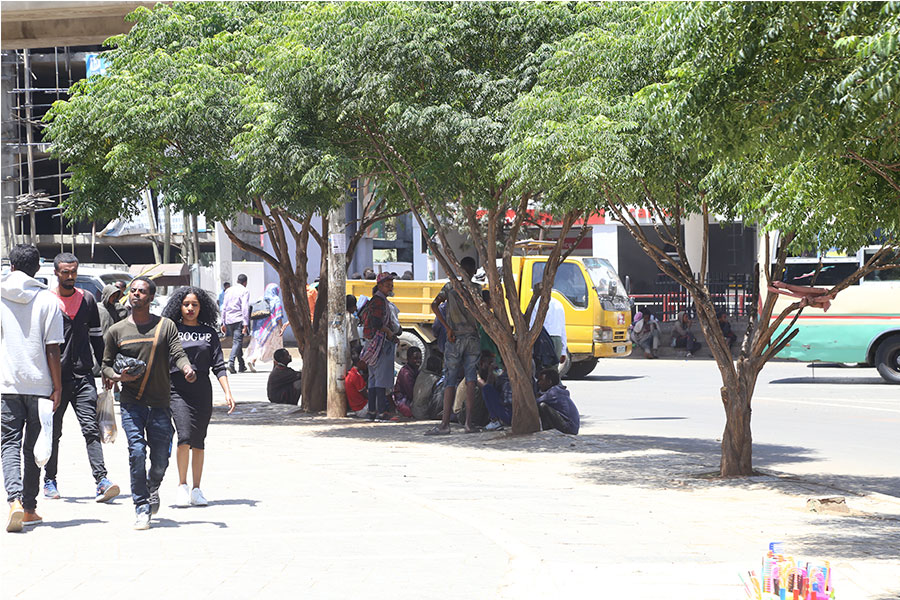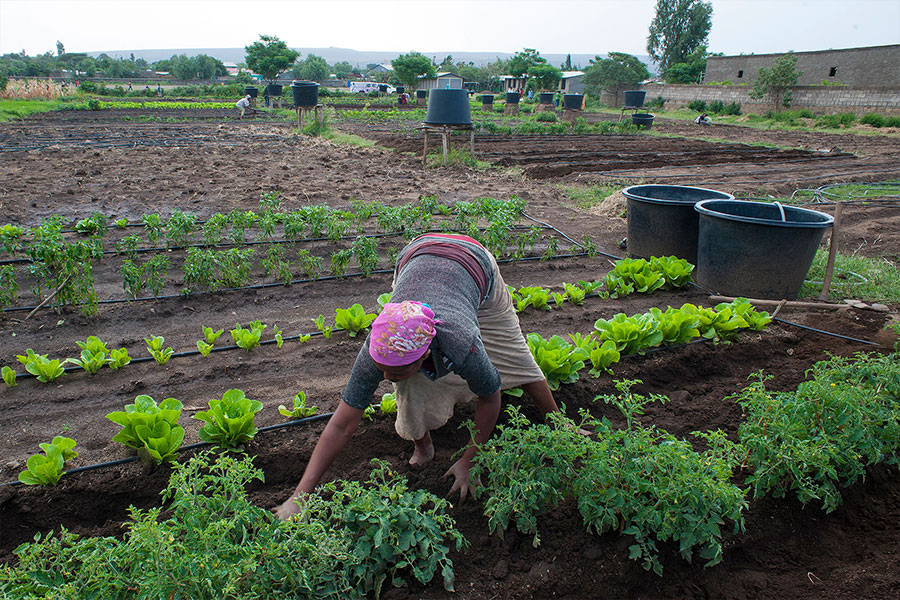
Radar | Jun 30,2024
A project that aimed to supply 20 million schoolchildren nationwide with leather shoes is struggling to get off the ground due to a lack of financing and interest.
The Leather Industry Development Institute (LIDI) designed the scheme, dubbed the 'Ethiopian School Shoe Project,' to supply 40 million pairs of leather shoes to students across the country over the coming fiscal year, estimating the entire venture to cost five billion Br. However, there looks to be little hope of the plan coming to fruition as government institutions that Fortune spoke to seem to be unaware that such a project even exists. Officials at the Ethiopian Planning Commission confirmed to Fortune that they have not received such a project for approval.
The Institute initially planned to implement the project, which it hoped would create 51,000 jobs, across nine regional states, beginning with a pilot in the Amhara, Sidama, Harar and Oromia regional states as well as in Dire Dawa City Administration. This has not panned out as regional education offices are unable to foot the bill for the shoes, and the Institute has been forced to downsize even further to just three schools in Oromia Regional State who have agreed to take part in the pilot.
The schools, located in Bishoftu, Adama, and Sebeta, will be expected to cover the cost of the shoes out of their own budgets. In its project proposal, the Institute cites that one pair of shoes is expected to have a final cost of 257 Br.
"Our Institution is a facilitator tasked with providing the training and designs for the [leather] manufacturers, and raising awareness around the country," Hailekiros Debesay, deputy director of LIDI, told Fortune. "We've already sent letters to four regional education offices, asking them to consider the idea of implementing leather shoes as part of school uniforms." He disclosed that the Institute has contacted offices in Amhara, Tigray, Oromia and SNNP regional states.
According to Amanuel Mengistu, who has been working in the leather sector as a retailer and wholesaler for over a decade, these types of projects can lead only to inflated prices for leather goods due to increased demand for raw materials.
"I think it would be better if the budget shifted into the construction of schools instead," he said. "If the government implements the project, it would increase the demand for raw materials and lead to a surge in prices of leather products, including shoes."
Tesfalem Gebremedhin, manager of Zemen Shoe Production, raises doubts about the feasibility of the project.
"I appreciate the plan, it's a good start but I have questions about the shoes' durability and raw materials are a major problem for these types of large-scale production projects.," he commented.
The Institute was hoping to get a flying start on the project following the successful implementation of a similar venture in Addis Abeba over the current fiscal year, through which it managed to facilitate the provision of 360,000 pairs of shoes to public schools in the capital through the City Administration.
The leather industry has been struggling with problems ranging from the unavailability of quality hides and skins to the closure of export destinations due to COVID-19. The Institute has planned to earn 17 million dollars from leather shoes exports this fiscal year but has so far only managed to register four million dollars.
PUBLISHED ON
Jun 12,2021 [ VOL
22 , NO
1102]

Radar | Jun 30,2024

Agenda | Mar 23,2019

Radar | Jun 26,2021

Radar | Dec 28,2019

Fortune News | Aug 31,2019

Fortune News | Dec 25,2021

Radar | Mar 11,2024

Commentaries | Sep 04,2021

Radar | May 18,2019

Radar | Jan 21,2023

Dec 22 , 2024 . By TIZITA SHEWAFERAW
Charged with transforming colossal state-owned enterprises into modern and competitiv...

Aug 18 , 2024 . By AKSAH ITALO
Although predictable Yonas Zerihun's job in the ride-hailing service is not immune to...

Jul 28 , 2024 . By TIZITA SHEWAFERAW
Unhabitual, perhaps too many, Samuel Gebreyohannes, 38, used to occasionally enjoy a couple of beers at breakfast. However, he recently swit...

Jul 13 , 2024 . By AKSAH ITALO
Investors who rely on tractors, trucks, and field vehicles for commuting, transporting commodities, and f...

Oct 25 , 2025
The regulatory machinery is on overdrive. In only two years, no fewer than 35 new pro...

Oct 18 , 2025
The political establishment, notably the ruling party and its top brass, has become p...

Oct 11 , 2025
Ladislas Farago, a roving Associated Press (AP) correspondent, arrived in Ethiopia in...

Oct 4 , 2025
Eyob Tekalegn (PhD) had been in the Governor's chair for only weeks when, on Septembe...